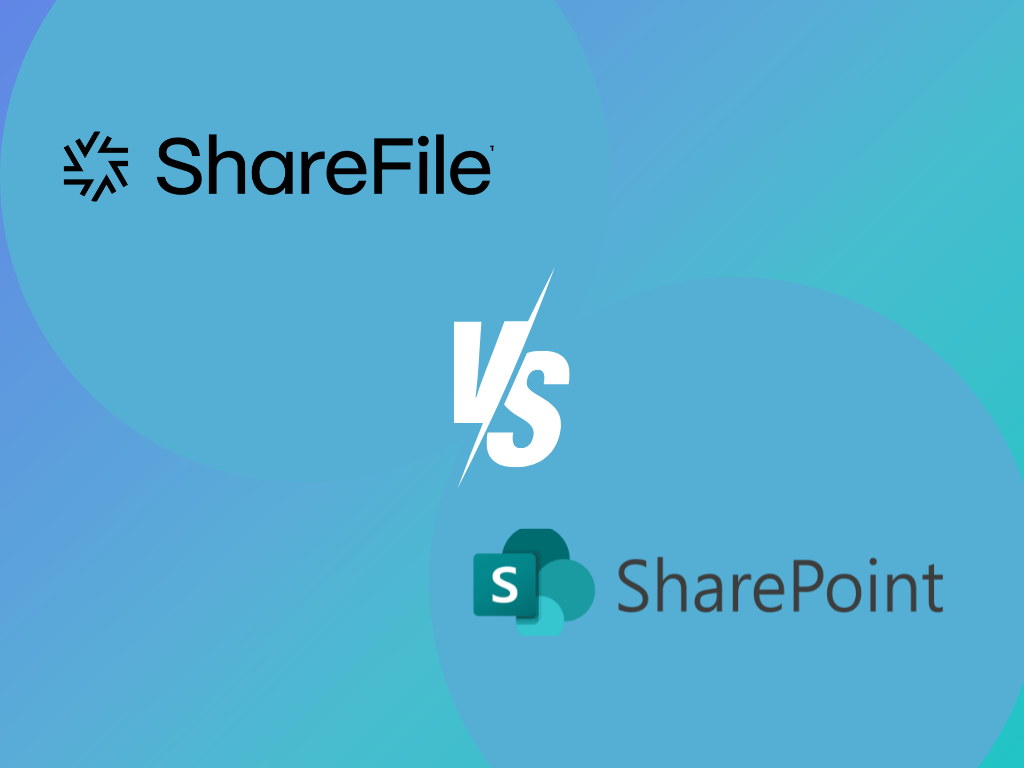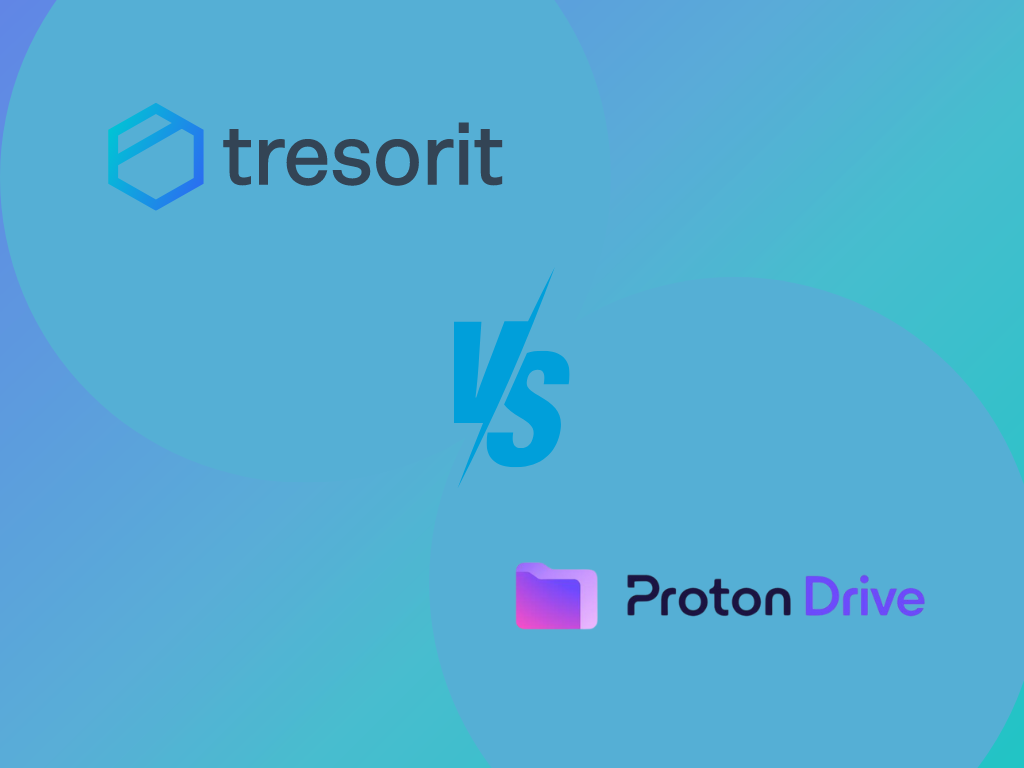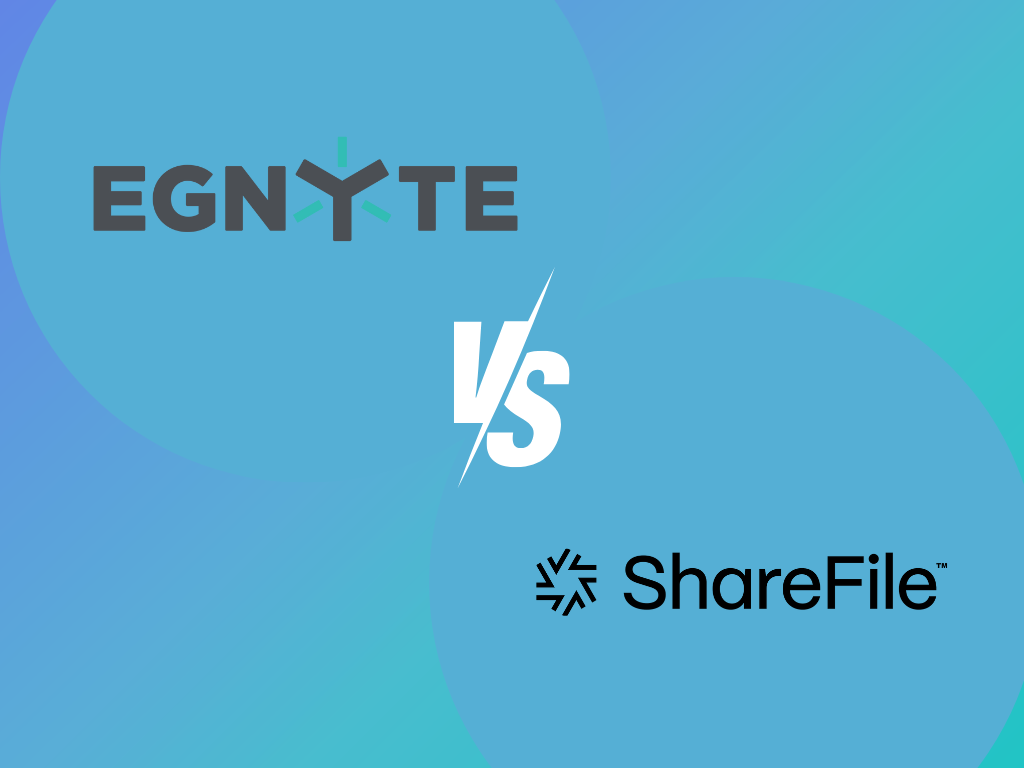The main difference between Egnyte and Box is that Egnyte is an EFSS cloud solution, while Box offers traditional cloud storage.
Egnyte offers a flexible solution for content security, governance, and collaboration in multi-cloud environments for businesses of all sizes. In contrast, Box provides a dedicated ecosystem of native apps, including Box Notes and Box Sign, facilitating smooth real-time collaboration.
Egnyte and Box Comparison
To help you find your best fit in terms of cloud storage, we’ve put together this feature table to help with comparing Egnyte and Box
| Storage Capacity | Security | File Sharing Capabilities | Collaboration Tools | Cost | |
| Egnyte | 5TB/user | 256-bit AES file encryption | Online Storage | Co-Editing, Review & Approval, File Sharing Controls | $10/month |
| Box | 100GB | Encryption, access controls, integration security | Offline syncing, Box Embed | Real-Time Collaboration, Box Notes, Collaborator Permission Levels | $5/month |
Storage Capacity
Egnyte offers various storage options, with the flexibility to add additional storage at any time through the account settings page. You can use its web-based reporting tools to monitor both storage usage and user permissions. The Egnyte Office and Business plans come with default online storage limits of 5 TB and 10 TB, respectively.
In contrast, Box provides up to 100 GB of storage for personal accounts and unlimited storage for business accounts. File upload limits range from 250 MB for free personal accounts to 150 GB for Enterprise Plus accounts.
Security
Egnyte highly prioritizes robust security, which is why it ensures data privacy through 256-bit AES file encryption and unique encryption keys. Additional security features you should expect on Egnyte include two-factor authentication, mobile passcode locks, remote device wiping, and real-time Data Loss Prevention (DLP) assessment.
Box isn’t much different as it also prioritizes user data and privacy with strong security measures, incorporating encryption, access controls, and integration security. For an additional layer of security, the Egnyte alternative uses features like role-based access controls, Single Sign-On (SSO), Multi-Factor Authentication (MFA), and password controls. Box also collaborates with security firms to implement additional measures like vulnerability management and network controls to enhance security.

Collaboration Tools
Egnyte boosts team productivity through features like Co-Editing and Review & Approval. These features collectively allow team members to edit files simultaneously in real time.
Box’s collaboration tools enhance team productivity and streamline workflows, positioning it as a robust alternative to Egnyte. Key features you would find on Box include real-time collaboration, collaborator permissions, and Box Notes (offering precise control over file sharing). Box’s ability to integrate with various productivity and collaboration tools also contributes to its seamless collaboration and teamwork capabilities.

File Sharing Capabilities
Alternative to Box, Egnyte’s file-sharing capabilities are meticulously designed to allow seamless sharing among users. The platform incorporates features like folder permissions, co-editing, review and approval, and file-sharing controls.
Box also prioritizes user-friendly, secure, and collaborative file-sharing features, including seamless offline syncing and Box Embed. Box Sync provides offline desktop file access, while Box Embed integrates files with apps and embeds them on websites or intranets.
Cost
Egnyte provides flexible plans with storage options of 150 GB, 1 TB, or 3 TB to meet diverse business needs. Starting at $10.00 per month, it offers Team ($10.00/month) and Business ($20.00/month) plans. Users can explore the platform with a credit-card-free trial before committing.
In contrast, Box’s pricing begins at $5.00 per user per month for the Starter (Business Plans). Enterprise Plus pricing is customizable for direct tailoring by Enterprise-level organizations. Additionally, Box offers a 25% discount on the standard price for annual subscriptions, accessible through their website.
Fill: The Definitive Choice for Cloud, Outshining Egnyte”
Looking for a feature-rich and cost-effective alternative to Egnyte? Check out Fill.
While Fill isn’t primarily known as a cloud storage platform, it is, in fact, the most all-industry-compliant cloud storage out here for documents and forms.
Fill shines as one of the most secure eSignature request platforms for individuals and businesses of all sizes. Since sharing documents is a given in most Fill use cases, Fill employs military-grade encryption for security so that there are no data leaks and even goes a step further with viewer/signer ID verification.
The Fill app supports all platforms, including iOS, Android, Mac OS, and Windows. This allows users to have access to their files with no limits to platform features whenever they need to.
If you are looking for storage on a budget, you won’t want to miss out on all Fill has to offer. Unlike Box Cloud with unpredictable pricing, Fill’s highest tier plan costs $24.99, which gives you unlimited cloud document storage, team accounts, and workflows, over 1000 document templates, and more.
Ready to see Fill in action? Try all of Fill’s services for free.




